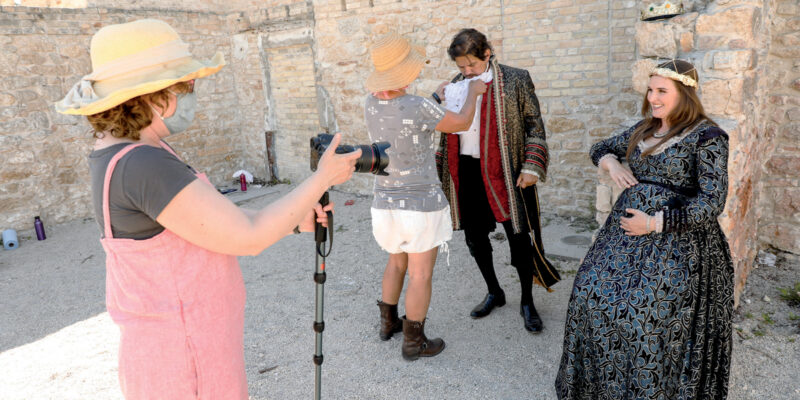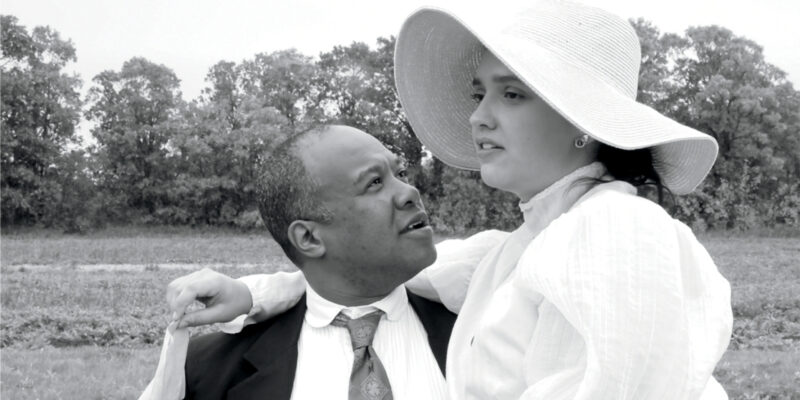
I was maybe six or seven when I fell in love with Shakespeare. Repercussion Theatre, our Montrealer’s version of SIR, would put on plays every summer in the park behind my house. I’d show up an hour early with my parents, equipped with a thick blanket and snacks, eager to secure my front row seat. I’d marvel at the preshow rituals, watching as actors and technicians set up. There was something so special about that liminal state of pre-show, intermission and post-show: the behind the scenes, the in betweens, where it seemed the magic seeped off the stage and poured into the real world. I was always so certain I’d encounter a fairy in the park on my walk home, or I’d feel every tree becoming Birnam wood and suddenly took off in a sprint to get home faster.
All that to say, yeah, I’ve been a Shakespeare nut since childhood.
I gave myself the challenge of reading all his Sonnets last winter in preparation for rehearsal for a play at the Stratford Festival. When I arrived at the Dark Lady sonnets, I suddenly realized how one-sided his portrayal of this woman truly was. How blinded by jealousy he was. How violent some of those poems actually are. It was a whole other side of Shakespeare we never really talk about. How strange and petty it is to write such brilliantly rhyming hate poetry. Who hurt you Bill? What was the relationship like before all the pain? What’s HER side of the story? You went on to become The Bard but no one knows who she is!
I went on an exoneration quest. I did some research on Emilia Bassano, she’s said to be the closest contender for the “Dark Lady.”She came from a family of talented musicians. She was Italian, Jewish, possibly of North African descent… It was all fascinating. But it wasn’t until I read her poetry (because yes, she wrote too) that the floor caved out from under me.
She was the first Englishwoman to publish her work as a professional poet. Her book of poems is filled with letters of appeal to powerful women. She wanted to create a community of women patrons, supporters and readers, at a time when such a concept didn’t even exist.
I’ve spent the pandemic falling in love with Bassano and what she was desperately trying to do. And my curiosity about her has been a catalyst towards wanting to unearth all women who’ve been lost to the dark. Strong, opinionated, pioneering women have been silenced and hidden throughout history. We now have a brilliant opportunity to pull them out of the dark and give them the acknowledgement and place the’ve always deserved. I’m hoping both The Dark Lady and this series of webinars can help do just that.
by Jessica B. Hill, Playwright
SIR plans to produce The Dark Lady as part of our 2022 season. Please visit our website and check out the webinar series ‘Expanding the Canon,’ also created by Jessica.








